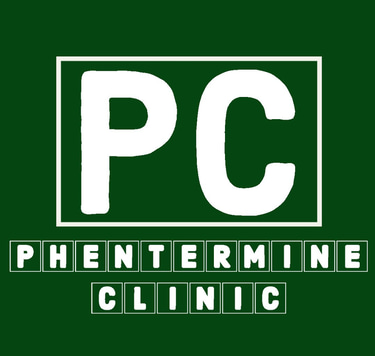What Medicines Interact with Phentermine? A Comprehensive Guide for Weight Loss Clinic Patients
Phentermine is a popular prescription medication used to aid weight loss by suppressing appetite. While it can be highly effective, it's crucial to be aware of potential interactions with other medications. These interactions can influence the effectiveness of phentermine and may cause adverse effects. For patients at weight loss clinics, understanding these interactions is vital for safe and successful treatment.
What is Phentermine?
Phentermine is a stimulant similar to an amphetamine. It acts as an appetite suppressant affecting the central nervous system. It is commonly prescribed as part of a treatment plan that includes diet, exercise, and behavioral changes to treat obesity in people with risk factors such as high blood pressure, high cholesterol, or diabetes.
How Does Phentermine Work?
Phentermine works by releasing chemicals in the brain that help reduce hunger. This effect can make it easier for individuals to follow a low-calorie diet and, thus, achieve weight loss. It’s typically prescribed for short-term use, often in conjunction with a comprehensive weight loss program.
Importance of Knowing Drug Interactions
Understanding the interactions between phentermine and other medications is crucial for several reasons:
Safety: Some drug interactions can lead to serious side effects.
Effectiveness: Certain drugs can diminish the weight-loss benefits of phentermine.
Health Monitoring: Knowing potential interactions helps healthcare providers monitor and manage treatment more effectively.
Common Medications that Interact with Phentermine
1. Monoamine Oxidase Inhibitors (MAOIs)
MAOIs are a class of medications used to treat depression. Examples include:
Isocarboxazid (Marplan)
Phenelzine (Nardil)
Tranylcypromine (Parnate)
Selegiline (Emsam)
Interaction: Taking phentermine with MAOIs can lead to a dangerous increase in blood pressure. It’s essential to avoid using phentermine within 14 days of stopping an MAOI.
2. Selective Serotonin Reuptake Inhibitors (SSRIs) and Serotonin-Norepinephrine Reuptake Inhibitors (SNRIs)
SSRIs and SNRIs are commonly prescribed for depression and anxiety. Examples include:
Fluoxetine (Prozac)
Sertraline (Zoloft)
Paroxetine (Paxil)
Venlafaxine (Effexor)
Interaction: Combining phentermine with these medications can increase the risk of serotonin syndrome, a potentially life-threatening condition characterized by high levels of serotonin in the brain.
3. Other Weight Loss Medications
Other medications aimed at weight loss can interact negatively with phentermine. Examples include:
Orlistat (Alli, Xenical)
Liraglutide (Saxenda)
Bupropion/Naltrexone (Contrave)
Interaction: Using multiple weight loss medications can increase the risk of cardiovascular side effects and other adverse reactions.
4. Antihypertensives
Antihypertensives are medications used to manage high blood pressure. Examples include:
Amlodipine (Norvasc)
Lisinopril (Zestril)
Losartan (Cozaar)
Interaction: Phentermine can increase blood pressure and heart rate, potentially counteracting the effects of antihypertensive medications.
5. Diabetes Medications
Medications used to manage diabetes include:
Insulin
Metformin (Glucophage)
Sulfonylureas (e.g., glipizide)
Interaction: Phentermine can affect blood sugar levels, making it necessary to monitor glucose levels closely and adjust diabetes medication dosages accordingly.
Other Notable Interactions
1. Thyroid Medications
Medications like levothyroxine (Synthroid) are used to treat thyroid conditions.
Interaction: Phentermine can exacerbate hyperthyroidism (overactive thyroid), so patients with thyroid conditions need careful monitoring.
2. Antiepileptic Drugs
Medications used to control seizures, such as:
Carbamazepine (Tegretol)
Phenytoin (Dilantin)
Interaction: Phentermine can decrease the seizure threshold, increasing the risk of seizures.
3. Antipsychotic Medications
Medications used to manage psychiatric disorders, including:
Clozapine (Clozaril)
Aripiprazole (Abilify)
Interaction: Phentermine can interfere with the effectiveness of these medications and exacerbate side effects.
How to Manage Drug Interactions with Phentermine
Managing drug interactions involves several key steps:
1. Comprehensive Medical History
Before prescribing phentermine, healthcare providers should obtain a detailed medical history, including all current medications, supplements, and over-the-counter drugs.
2. Regular Monitoring
Patients taking phentermine should have regular follow-ups to monitor blood pressure, heart rate, and other vital signs. Blood tests may be necessary to monitor for potential interactions and side effects.
3. Patient Education
Educating patients about the signs of adverse reactions and the importance of adhering to their prescribed medication regimen is crucial. Patients should be informed about the symptoms of serotonin syndrome, high blood pressure, and other potential issues.
4. Adjusting Medication Dosages
In some cases, it may be necessary to adjust the dosages of either phentermine or the interacting medication. This should be done under the guidance of a healthcare provider.
5. Alternative Medications
If a significant interaction is identified, healthcare providers may consider prescribing alternative medications that do not interact with phentermine.
Natural Supplements and Phentermine
In addition to prescription medications, natural supplements can also interact with phentermine. Some supplements to be cautious about include:
1. St. John’s Wort
Used for depression, it can increase the risk of serotonin syndrome when combined with phentermine.
2. Caffeine
Often found in weight loss supplements, caffeine can increase the stimulant effects of phentermine, leading to increased heart rate and blood pressure.
3. 5-HTP
A supplement used to boost serotonin levels, it can increase the risk of serotonin syndrome when taken with phentermine.
Conclusion
Phentermine can be an effective aid in weight loss when used correctly and under the supervision of a healthcare provider. However, understanding the potential interactions with other medications and supplements is crucial for ensuring patient safety and maximizing the benefits of the treatment.
At weight loss clinics, it is essential to educate patients about these interactions and closely monitor their progress. By doing so, healthcare providers can help patients achieve their weight loss goals safely and effectively.
For patients, it’s important to provide a comprehensive list of all medications and supplements they are taking and to communicate any side effects or concerns with their healthcare provider. This collaborative approach can lead to successful weight loss outcomes while minimizing the risk of adverse reactions.
By staying informed and vigilant, both patients and healthcare providers can navigate the complexities of phentermine interactions and achieve the desired results in a safe and controlled manner.


